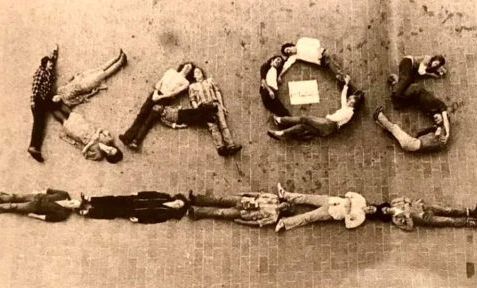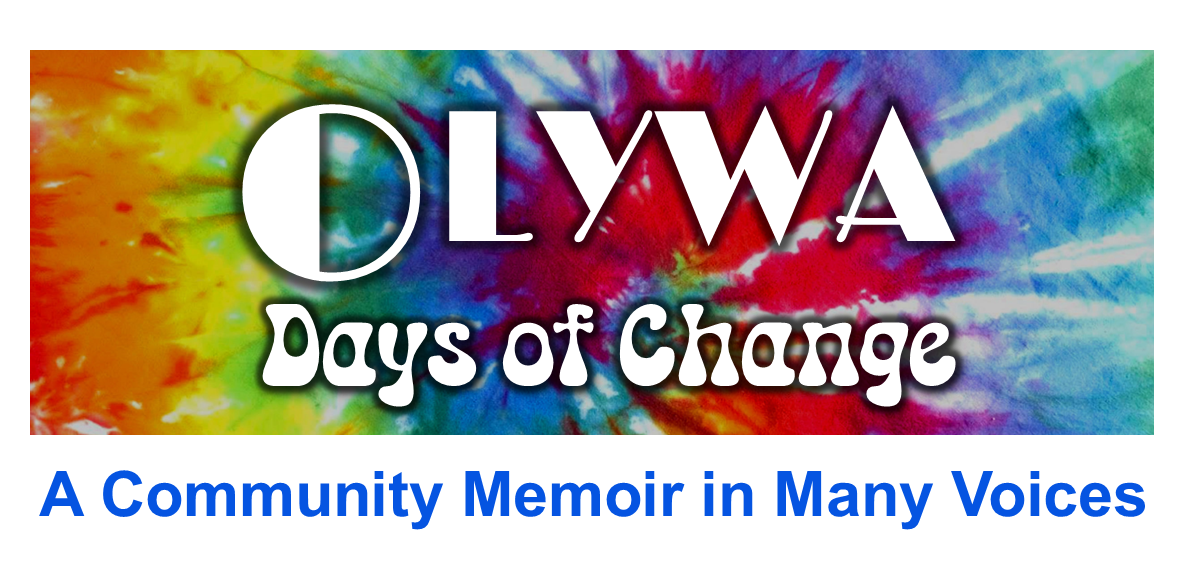SCHOOL
Media Monitoring at KAOS
By Susan Davenport

I was a programmer on KAOS FM, the campus radio station, for most of my undergraduate years at Evergreen 1974 – 1980. I read news stories as the news director, and did public affairs spots and an occasional jazz show. My longest lasting show was Wireless Community where I did public affairs interviewing with local nonprofits and activist groups to update the community on activities and coming events. I taped and edited the news coming in on the wire in the mornings to be played throughout the day.
The intro to Wireless Community included reading short paragraphs from the second page of the local newspaper where there were brief but important stories that didn’t make the front page. This was often somewhat controversial breaking news that made big headlines later.
On one show I read a brief story about a WPPSS (Whoops!) nuclear power plant being decommissioned, due in part from finding a fault line under the construction site. A week or so later I was called to the office of the college president. A vague mention was made about the content of my programming on KAOS.
This made me curious more than anxious. Naively, I thought the president, Dan Evans, must be impressed by my dedication as a liaison to the broader community through the college radio outlet. I went into the meeting looking forward to sharing what I had been doing with my show.
I dressed up for the meeting and entered his office expectantly with copies of the radio program newsletter under my arm. President Evans was there with two “suits” who he introduced as from “communications” at the Washington State Department of Commerce, Energy DIvision. They were grim fellows, no smiles greeting me. This set the tone for the meeting. Surprise and confusion set in for me.
President Evans stated that this would be a brief meeting and asked if I had done a piece about a WPPSS project recently on Wireless Community. I told him I had read an article from the Daily Olympian about it in my segment called “From the second page.” He asked what editorial remarks I had added. I honestly answered that I did not remember what comments I may have added (this was not entirely true, because it was a celebratory moment for me knowing that the nuclear power plant project was going to be shut down—I probably expressed my joy).
Evans presented his concern that the college radio station as an agency of the State of Washington must not be used to present false information about other state projects or agencies.
This raised my ire. To be told what to say or not to say on the radio. My response was simply that I had read an article from the local newspaper which I presumed to be accurate. One of the agency reps asserted that there was an editorial comment added that “was not accurate.” Since I could not remember what I had said on the air, I told them that all my shows had a disclaimer at the end protecting the college from liability. This was met with surprise from this group of three. The president said in a very friendly tone, “Well, that’s good then. Thank you for coming in.” He seemed relieved and ended the meeting. The two suits and I were summarily dismissed. I left in a state of exhilaration and confusion.
Afterward, I processed this exchange with others speculating who was monitoring the radio station and what connections at a high level got the meeting with the college president. I came to realize Evans also may have been called on the carpet by a higher authority (the governor? The head of WPPSS or the Nuclear Regulatory Commission?), given that the message came out of “his” college. He was, of course, the governor himself for 12 years.
A key learning from my years of taping news feeds off the wire in the morning was being able to watch how the raw news was changed, edited, headlined, downplayed, or omitted during the day by other radio stations and the print media.
We encourage readers to contact us with comments and corrections. Disclaimer
